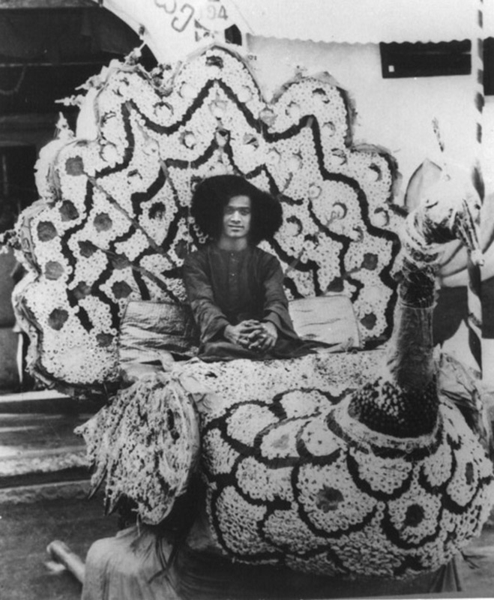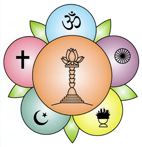
Ignorance does not exist alone; it has an offspring – ahamkara (ego). That demon has two children – attachment or attraction (raga) and impulse (vasana); that is to say, passion and craving. Passion and craving are closely interrelated. As the passion, so the desire. They are sisters. Through attachment, one gets the feelings of ‘my and mine’; these feelings provoke desire, and desires breed worry. Therefore, to remove ego (ahamkara), attachment and impulse have to be annihilated. That means ignorance has to go, for by that means alone can ego be killed. How to destroy ignorance and develop wisdom (sujnana)? That is the question! The answer is through meditation. The conquest of ignorance, ego, attachment, and impulse brings about liberation (moksha) for the individual (jivi). – Dhyana Vahini, Ch 11.
Gedanke für den Tag aus Prasanthi Nilayam vom 4. August 2022
Die Unwissenheit existiert nicht allein; sie hat einen Nachkommen – Ahamkara (Ego). Dieser Dämon hat zwei Kinder – Anhaftung oder Anziehung (raga) und Impuls (vasana); das heißt, Leidenschaft und Begierde. Leidenschaft und Begierde sind eng miteinander verbunden. Wie die Leidenschaft, so das Verlangen. Sie sind Schwestern. Durch Anhaftung bekommt man das Gefühl von „mir und mein“; diese Gefühle wecken Begehren, und Begehren erzeugt Sorgen. Um das Ego (ahamkara) zu beseitigen, müssen daher Anhaftung und Impuls ausgelöscht werden. Das bedeutet, dass die Unwissenheit verschwinden muss, denn nur auf diese Weise kann das Ego getötet werden. Wie kann man Unwissenheit zerstören und Weisheit (sujnana) entwickeln? Das ist die Frage! Die Antwort lautet: durch Meditation. Die Überwindung von Unwissenheit, Ego, Anhaftung und Trieb führt zur Befreiung (moksha) für das Individuum (jivi).
Sri Sathya Sai, Dhyana Vahini, Kapitel 11
© Sri Sathya Sai Media Centre | Sri Sathya Sai Sadhana Trust – Publications Division
